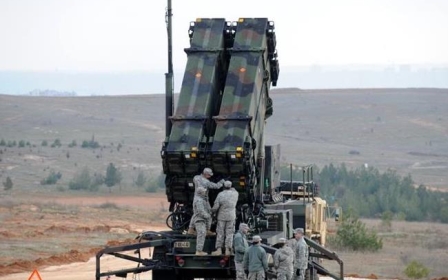Saudi price cuts send oil prices to 2-year low

Price cuts by key exporter Saudi Arabia helped send global crude prices to their lowest point in more than two years Thursday before they recovered in late trade.
Analysts said Riyadh had announced lower prices for the fourth straight month to hold onto market share, which it had been losing against a broader increase in production by rivals in OPEC and elsewhere.
In New York the price for the West Texas Intermediate benchmark for November delivery retreated to $88.18 -- touching a level last seen on April 23, 2013 -- before recovering to $91.01, for slight gain of 28 cents from Wednesday.
In London, Brent crude dropped to $91.55 a barrel, last hit in June 2012, but later rebounded to $93.42, for a loss of 74 cents.
Andy Lipow of Lipow Oil Associates pointed to data showing that OPEC as a whole increased crude production last month.
"At the same time, Saudi Arabia are trying to entice more buyers with lower prices as an attempt to maintain market share in light of the increasing supply from Libya, Russia, as well as Kurdistan," he said.
The Saudis, meanwhile, are also reported to be cutting back production with the aim of slowly tightening up market supplies.
Some observers said the Saudi move could have some political motivations, including the aim choke the funds of the Islamic State militant group, which is selling oil in the areas its controls in Iraq and Syria.
But other observers have dismissed the notion that there is a political reasoning behind the move.
"This is unlikely to have moved Saudi decision-makers. Historically, they have often been accused of manipulating prices to hurt or help their respective enemies or friends, but most of their moves can easily be explained as responsive to market realities," Michael Lynch, a petroleum economics and energy policy analyst, wrote in Forbes.
Riyadh is reportedly engaged in a 'price war'.
"Saudi market share in Asia is really under assault. It is a price war. The Saudis will win, but it won’t be painless," Seth Kleinman, head of European energy research at Citigroup in London, told Bloomberg.
Middle East Eye propose une couverture et une analyse indépendantes et incomparables du Moyen-Orient, de l’Afrique du Nord et d’autres régions du monde. Pour en savoir plus sur la reprise de ce contenu et les frais qui s’appliquent, veuillez remplir ce formulaire [en anglais]. Pour en savoir plus sur MEE, cliquez ici [en anglais].




